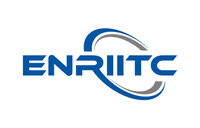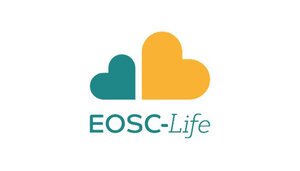Interdisciplinary Cooperation in ESFRI Cluster Projects
EMPHASIS is developing targeted synergies with other ESFRI projects and has joined infrastructure clusters in the fields of biomedical sciences CORBEL and environmental sciences ENVRIPlus. Further cooperation will be strengthened within the cluster projects EOSC-Life and RI-VIS.
The development of joint strategies is being promoted withELIXIR and AnaEE.

Integrated SERvices supporting a sustainable AGROecological transition (AgroServ)
Agriculture provides a profound basis for our society in terms of food, feed and non-food bio-related products and thus provides huge social, environmental and economic benefits. However, is has come increasingly under pressure by increasing world population, an ongoing depletion of natural resources, environmental degradation, and climate change impacts. This raises the need for an agricultural transition towards more resilience while ensuring food and nutrition security globally.

Artificial Intelligence for Image Data Analysis in the Life Sciences (AI4Life)
Artificial Intelligence and Machine Learning provide powerful approaches, technologies, tools and methods, for automated image analysis, and can thus help to increase efficiency and effectiveness of plant phenotyping (and many other fields of biological research). However, although they have already proven to accelerate frontier research in life sciences, an democratised access to such methods is not given yet. Additionally, existing methods and tools are typically insufficiently documented and at times even hard to find, especially for life scientists without computational expertise. Furthermore, a lack of standards to enable sharing of pre-trained AI-based models between different analysis tools exists, which severely restricts interoperability within and across the life science domain.
Life Sciences
Coordinated Research Infrastructures Building Enduring Life-science Services (CORBEL)
EMPHASIS is a project partner in the CORBEL cluster project with 13 research infrastructure from biomedical research area aiming at the development of synergies to provide access to cutting-edge biomedical research infrastructures. . Through a user-led approach CORBEL will develop the tools, services and data management required by cutting-edge European research projects.

Stepping up scientific excellence and innovation capacity for climate-resilient crop improvement and production (CROPINNO)
The Horizon Europe twinning project CROPINNO aims at supporting a key scientific institution on climate-smart crop production in the Western Balkans, the Institute of Field and Vegetable Crops, Novi Sad (IFVCNS), in further developing innovation capacity and scientific excellence.
EMPHASIS-GO
Bringing EMPHASIS to Operation
Plant production is central in agriculture, food systems, and in bio-economy applications, which is essential to address future challenges related to growing population, climate change, scarcity of agricultural land, loss of biodiversity etc. Integrated solutions and new technologies are needed to improve plant production, based on knowledge-driven innovation to the farming sector, agricultural and seed industries.
Networking with Industry
European Network of Research Infrastructures & IndusTry for Collaboration (ENRIITC)
EMPHASIS is associate partner of the ENRIITC project that supports the establishment of strategic, cross-border partnerships between industry and research infrastructures. ENRIITC kicked off in January 2020 and will conclude in December 2022 and aims at building a permanent pan-European network of Industrial Liaison and Contact Officers and enable industry to become a full partner of research infrastructures whether it is as a user, a supplier, or a co-creator.
Environmental Sciences
Environmental Research Infrastructures Providing Shared Solutions for Science and Society (ENVRIplus)
EMPHASIS is an associated partner with 26 environmental and earth system research infrastructures in the ENVRIplus cluster project that aims at developing integrated solutions to create a more coherent, interdisciplinary and interoperable cluster of Environmental Research Infrastructures across Europe. ENVRIPlus will provide key tools and instruments for researchers to address grand challenges such as climate change.
EMPHASIS provides strategic advice on creating more a coherent, interdisciplinary and interoperable clusters of environmental research infrastructures across Europe BEERI.
Data Sciences
Providing an open collaborative space for digital biology in Europe (EOSC-Life)
Together with 13 other ESFRI projects from the "Health and Food" sector, EMPHASIS is developing a digital platform for cooperation across disciplinary boundaries in order to make data available and usable in accordance with FAIR principles. A joint project for the implemention of the European Open Science Cloud EOSC-Life started in March 2019.
PHENET

Europe urgently needs to find pathways towards agroecological transition of agroecosystems in support to food security, climate change resilience, biodiversity and soil carbon stocks restoration. To that end, the European Research Infrastructures (RI) on plant phenotyping (EMPHASIS), ecosystems experimentation (AnaEE), long-term observation (eLTER) and data management and bioinformatics (ELIXIR) join their forces in the EU-funded project PHENET. This project has a 5-year timeline and started in Jan 2023. Therein, the partners co-develop, with a diversity of innovative companies, new tools and methods – meant to contribute to new RI services - for the identification of future-proofed combinations of species, genotypes and management practices in front of the most likely climatic scenarios across Europe.
Internationalisation
Expanding research infrastructure visibility to strengthen strategic partnerships (RI-VIS)
EMPHASIS has joined forces with 13 ESFRI projects to develop instruments that increase the visibility of European research infrastructures to broader scientific communities, industry and strategic partners in third countries. The project RI-VIS was launched in February 2019.







